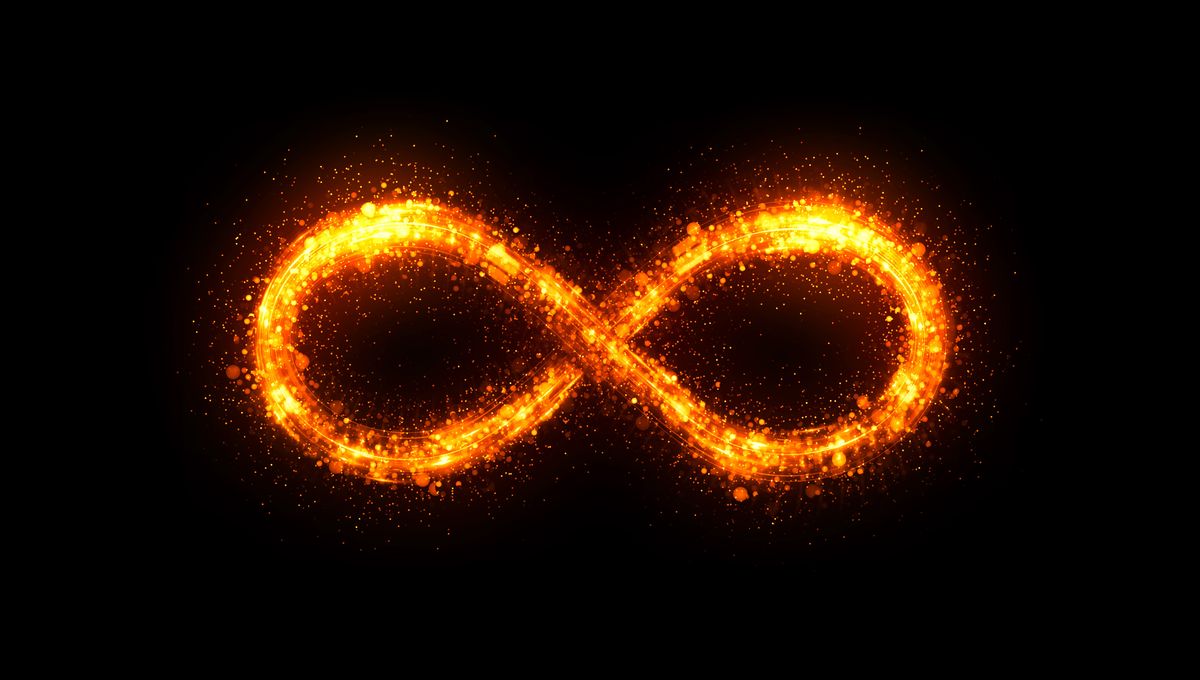
Back in elementary school, infinity made sense. It was the number you used to win arguments: “no, you suck worse, times infinity!”
Now that we’re older, though, we’d hope to have a more nuanced and technical grasp of the concept. Unfortunately, a recent study has found that most of us… probably don’t.
“Traditional cognitive science has focused on phenomena grounded in sensory experience, but infinity is entirely different,” Michal Pinhas, principal investigator of the Quantitative Thinking and Cognition Lab at Ariel University and author of the study, told PsyPost.
“Understanding infinity requires abstract thinking that goes beyond concrete representations and everyday experiences, which I find both puzzling and challenging,” the researcher said.
So, first things first: what is infinity? For mathematicians and philosophers, it’s more of a concept than a number: “In a strict but non-mathematical sense that reflects its etymological history, ‘infinite’ means ‘having no limit or end’, ‘boundless’, ‘unlimited’, ‘endless’, ‘immeasurably great in extent (or duration, or some other respect)’,” notes the Stanford Encyclopedia of Philosophy. “This strict, non-mathematical sense is often applied to God and divine attributes, and to space, time and the universe.”
But “there is also a strict, mathematical sense,” it continues, “according to which ‘infinite’ quantities or magnitudes are those that are measurable but that have no finite measure; and ‘infinite’ lines or surfaces or volumes are measurable lines or surfaces or volumes that have no finite measure.”
Of course, writing all that every time you have a sum to work out would get tedious pretty quickly, and so mathematicians came up with a handy shorthand: the symbol ∞.
There’s just one problem with that, though: apparently, it makes people think of it as a number like any other. In a series of four experiments, participants were asked to judge which of two figures was larger – sometimes it was a pair of numbers, like 5, or 44, but sometimes the infinity symbol was included.
In that last case, the task should have been simplest of all – after all, nothing beats infinity. But in fact, the experiments revealed a more complex picture of how we comprehend numbers and figures, with even visual cues such as the size of the font playing into how we perceive a value.
“I was surprised,” Pinhas told PsyPost. “In certain conditions, people processed the infinity symbol as smaller than multidigit numbers.”
More generally, people seemed to perceive the infinity symbol as “representing a concrete number, rather than an abstract concept distinct from numbers,” said Pinhas – just another point on the number line, in other words, albeit one very far off to the right.
This was evident from their reaction times in the task, Pinhas explained. See, generally, people take a bit longer to figure out which number is larger when the two are close in value, and are quicker when they’re further apart. You can try it yourself – the difference between, say, 5 and 67,321 probably hits you immediately, while sorting 13.102 and 13.201 might make your brain pause for a second.
But this effect also seems to have cropped up in the experiments: when asked what was bigger between the infinity symbol and a small number, participants were faster to react than when a large number was presented – as if they perceived a number like 999 as being “closer to infinity” than one like 5.
The truth, of course, is that neither is closer, because infinity isn’t a fixed point – both numbers are “infinity away” from infinity, if you like. But “while we often think of infinity as ‘the largest’ or ‘something beyond all numbers,’ our minds don’t always process it that way,” Pinhas told PsyPost.
Now, it’s important to note that the study only presents a limited picture. Most of the participants were psychology or engineering undergrads, which is hardly generalizable to most people, and only the lemniscate – that’s the technical name for the sideways-eight symbol we use to denote infinity – was used. “It’s possible that other symbolic representations of infinity might be processed differently,” Pinhas said, and “in fact, new research in my lab suggests this may indeed be the case.”
Still, it’s an intriguing insight into the ways our brains grapple with concepts that defy intuition. After all, we’re basically a group of apes with aspirations – we were never meant to be dealing with abstract concepts, so it’s an interesting question as to how we manage (or, evidently, mismanage) to do so.
“The goal is to gain deeper insights into how the human mind handles concepts that lack direct, concrete connections to everyday experience, and how this influences reasoning and decision-making,” Pinhas explained.
“This research highlights how deeply our understanding of numerical concepts is rooted in physical experience,” the researcher concluded. “It also raises broader questions about how our minds perceive abstract concepts in general.”
The study is published in the Journal of Experimental Psychology: Learning, Memory, and Cognition.
Source Link: Sometimes, Our Brains Think Infinity Is Smaller Than Real Numbers. What The Heck?